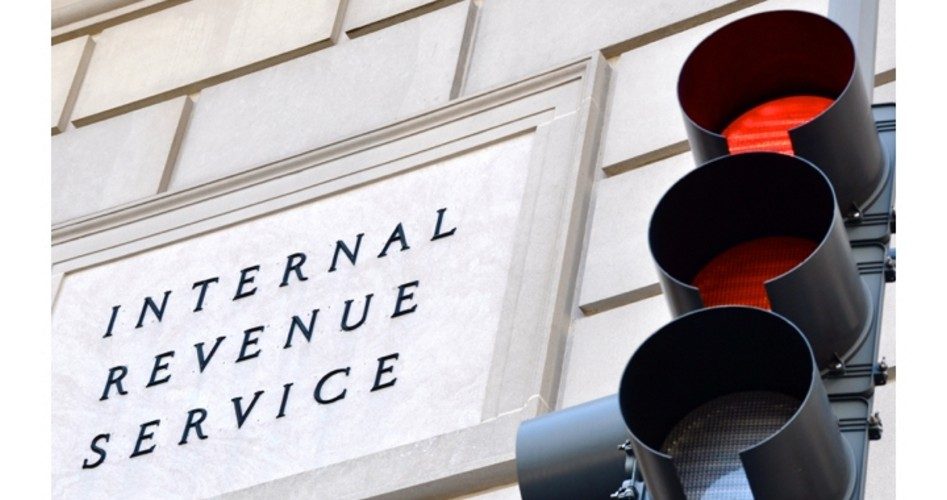
Three Tea Party groups that applied for nonprofit status with the Internal Revenue Service (IRS) several years ago have finally received determinations from the tax agency on their applications, though two of them have been denied tax-exempt status. The American Center for Law and Justice (ACLJ), which represents the Tea Party groups in a case against the Internal Revenue Service over the agency’s targeting of conservative groups, contends that the lengthy deliberations and recent denials are evidence that the IRS continues its corrupt practices, including singling out conservative organizations for punishment.
Since 2013, 41 conservative groups represented by the American Center for Law and Justice filed a lawsuit against the IRS over the agency’s illegal targeting of Tea Party and other conservative groups that applied for tax-exempt 501(c)(4) “social welfare” organization status between 2010 and 2012. During that time period, those groups faced additional audits and scrutiny by the federal agency. The audits cost the organizations tens of thousands of dollars and thousands of employee hours, and ultimately prevented or delayed the groups from receiving of tax-exempt status. Today, the ACLJ represents 38 groups in federal court in the case against the IRS. Additionally, the agency has been named in several other lawsuits over its targeting of conservative groups, including a class action suit led by NorCal Tea Party Patriots.
Last month, the ACLJ secured an important victory when District Judge Reggie Walton ordered that the IRS stop delaying determinations on outstanding tax-exempt applications of Tea Party groups and other conservative organizations and gave the agency 30 days to comply. Judge Walton also determined that the IRS must disclose the details of its scheme to target Tea Party organizations.This includes answering questions regarding the determination process prior to the targeting, how and why the targeting began, how the applications were treated during the targeting, and what the agency is doing to prevent further retaliation or discrimination.
Three of the groups that have been awaiting decisions on their applications for nonprofit status received notices from the IRS this week.
The Albuquerque Tea Party was strung along by the Internal Revenue Service for seven years while it was awaiting nonprofit status, only to learn this week that it’s been denied. The Tri Cities Tea Party in Washington was denied this week as well.
However, another tea party group, Unite in Action, a Michigan-based organization that first applied for tax-exempt status more than six years ago, has been granted nonprofit status.
“We’re pleased Unite in Action has finally received its approval after lengthy delays,“ said Jay Sekulow, chief counsel at the American Center for Law and Justice. “We’re now in the process of reviewing the proposed denials in the other two cases as we aggressively move forward with our federal lawsuit against the IRS to ensure it is bound by the U.S. Constitution and the law protecting the fundamental freedoms of speech and association that serve as the bedrock to this great nation.”
“It is clear that we still have an IRS that is corrupt and incapable of self-correction,” adds Sekulow.
The IRS admitted in court earlier this year that it was indeed targeting tea party groups for scrutiny and released a list of over 400 organizations it targeted.
Sadly, the IRS was cleared of any wrongdoing by the Department of Justice in 2015 after its investigation, despite a determination from the inspector general that the IRS was using inappropriate criteria to identify tax-exempt applications for review by a team of specialists, including applications from organizations with “Tea Party,” “Patriots,” or “9/12” in their name.
“Ineffective management is not a crime,” Assistant Attorney General Peter Kadzik said in a letter to the House Ways and Means Committee. “The Department of Justice’s exhaustive probe revealed no evidence that would support a criminal prosecution. What occurred is disquieting and may necessitate corrective action — but it does not warrant criminal prosecution.”
Critics questioned the impartiality of the Justice Department’s investigation, noting that Barbara Bosserman, a Department of Justice trial attorney tasked with leading the IRS tax exempt organization investigation, had been a donor to the Democrats.
Furthermore, documents released by the government watchdog group Judicial Watch showed intense collusion between the DOJ and the IRS. The two agencies plotted to pursue criminal charges against opponents of the Obama administration.
But the IRS is not off the hook yet as it defends itself in several court cases.
Last weekend, Sekulow asked a federal judge in the District of Columbia to officially declare that the IRS violated the groups’ First Amendment rights. He declared, “One thing remains clear: Continued litigation is the only way to force the IRS’ hand in order to expose its targeting scheme that was coordinated with the help of the DOJ and other federal agencies so that we can obtain justice for those patriotic Americans who were unconstitutionally targeted by their own government.”




